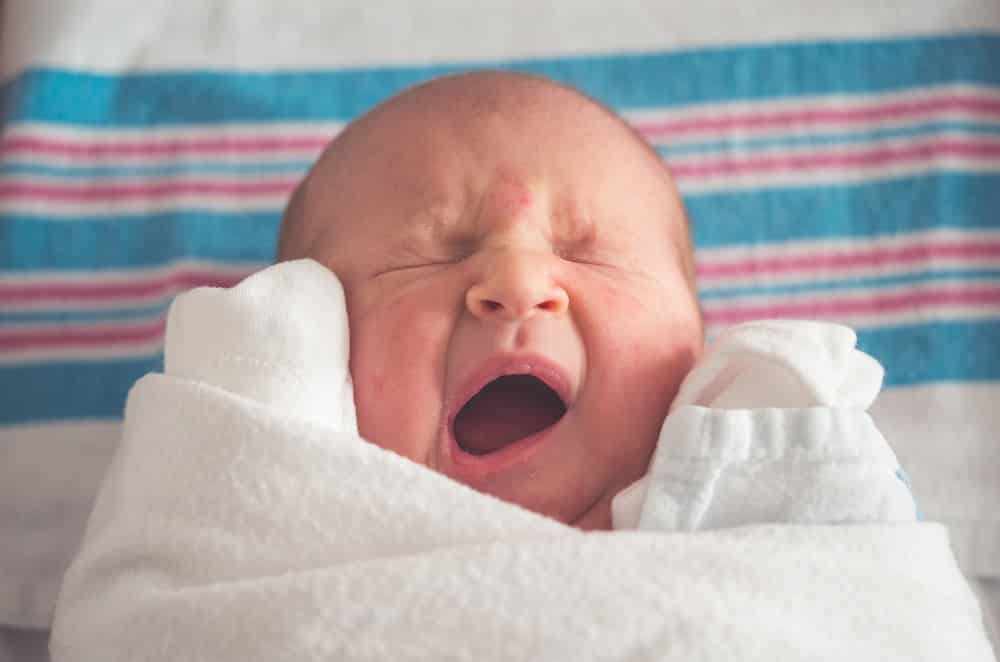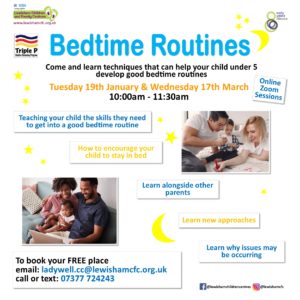Why is sleep important for our health?
Every living creature needs to sleep. Our body and brain cannot function optimally without sleep. Like eating healthily and exercising, getting enough restful sleep is critical to good health. Sleep allows our body to rest and restore energy, playing a key role in helping our body repair itself. Getting enough good sleep helps us function normally during the day.
The Circadian rhythms, or the sleep-wake cycle, are regulated by light and dark and these rhythms take time to develop. This helps us to understand why the sleep patterns of a new born baby is irregular as their Circadian Rhythms are not yet fully developed.
The Circadian rhythms begin to develop at about six weeks, and by three to six months most infants have a regular sleep-wake cycle. By the age of two, most children have spent more time asleep than awake and overall, a child will spend 40 percent of his or her childhood asleep. Sleep is especially important for children as it directly impacts mental and physical development.
While sleep requirements vary slightly from person to person, most healthy adults need between 7 – 9 hours of sleep per night to function at their best. Children and teens need more. And despite the notion that our sleep needs decrease with age, most elderly people still need at least 7 hours of sleep.
There are two alternating types or states of sleep:
Non-Rapid Eye Movement (NREM) or “quiet” sleep. During the deep states of NREM sleep, blood supply to the muscles is increased, energy is restored, tissue growth and repair occur, and important hormones are released for growth and development.
Rapid Eye Movement (REM) or “active” sleep. During REM sleep, our brains are active and dreaming occurs. Our bodies become immobile, breathing and heart rates are irregular.
Babies spend 50 percent of their time in each of these states and the sleep cycle is about 50 minutes
Getting enough sleep with a new baby.
As a new parent I can still remember being asked “Are you sleeping ok, you look tired?” I wanted to say “are you joking, I have a new baby I haven’t sleep properly since she was born, and at times I’m so tired I can barely remember my name”.
Not getting enough sleep when you have a new baby is something most parents have in common. No surprise then that one study found new parents’ sleep quality sharply declined after birth, and reached its worst point during the first three months. The good news is you’re not alone and it does get better, with most parents reporting that sleep improved after this (Richter et al 2019). So however tough it seems at times, it doesn’t last forever and there are things you can do to help.
The Play Inspector has been creating some fun activities around preparing your child for sleep, she can be found on Facebook or Youtube
- The Lullaby Trust has information and advice on Coping with sleep deprivation as a new parent on their website
Does everyone ask how your baby sleeps? Does everyone else’s baby seem to sleep more than yours? Do you feel like you or your baby are being judged by how ‘well’ he/she sleeps? Has someone told you your baby ‘should’ be sleeping differently to how they are? If so, you are not alone!
When we have a new baby, many of us often find that talking about sleep causes others to offer (often unwanted) suggestions for how we can (or ‘should’) encourage our baby to sleep more. Although we all know that the first few months with a baby will involve disrupted nights, our expectations for how long this lasts, and our understanding of how normal infant sleep develops, can be unclear or unrealistic, and comments from others can be worrying: Am I doing it right? Is there something wrong with my baby?
As sleep deprivation continues, we may search for bright ideas for getting a ‘good night’s sleep’, or we may be tempted to try out the suggestions of family, friends, or well-wishers. But how do we know these ideas or suggestions are safe, that they won’t affect our infant’s health, or have long-term consequences?
It is important to remember that babies operate according to their own internal biological rhythms and they are unaware of what their parents are being told.
It often takes several months for a baby’s day-night pattern of wake and sleep to become established.
During this time many parents just need reassurance that their baby is normal, and that their baby’s sleep patterns are developing as expected.
In cases where we are unhappy with our infant’s sleep development it may not be the baby that is problematic, but our expectations regarding sleep and babies’ needs
- Here is some information that the National Sleep Foundation says about sleeping when you have a new baby.
- The Lullaby Trust has information and advice on Coping with sleep deprivation as a new parent on their website
For many new parents, the word “tired” takes on new meaning during the first few weeks after bringing a baby home. New mums and dads are often surprised by just how drained and exhausted they are, and at times, it can seem as if they’ll never feel rested again. But while it can be difficult to avoid sleep deprivation entirely thanks to the fact that new-borns typically wake up every three hours to eat, these tips can make it easier to get through those special but sleepless days and nights.
Sleep When You’re Baby Sleeps
The golden rule of new parenting is to follow your baby’s lead and snooze whenever you put your infant down to sleep. This means ignoring your to -do list, shutting off your mobile phone, and sneaking in as much rest as you can until your new-born wakes up.
Go for Morning Walks
The exposure to natural sunlight in the morning can reset your circadian rhythm after a sleepless night. It also helps an infant develop a regular sleep-wake cycle. Plus, the exercise may make it easier to fall asleep when you do have a chance to nap.
Avoid Bed Sharing
While it’s tempting to snuggle, when sleep is a priority it’s best for mums to place their baby back in the crib or bassinet after nursing. Being alone in the bed may improve the chances of getting better quality sleep.
Call in Help
Ask your partner (or a parent, sibling, or friend) to alternate baby duties with you so that you can make up for missed sleep with short naps during the day. Even 15 minutes of shut-eye can be beneficial to body and mind.
While extreme fatigue is normal during the early days of parenthood, if your level of exhaustion is so great that it is impairing your ability to make safe decisions or carry out daily functions, it’s important to talk with your doctor. A lack of sleep may actually increase the chance of postpartum depression, and—on the flip side—postpartum depression may make it more challenging for a new parent to get sufficient sleep.
The good news is, the weariness won’t last forever. New parents say that they get about six hours of night-time sleep and a one-hour nap during the day by the time their baby turns 2-months-old, numbers that are pretty close to the national average for all adults.
- Read this article from The National Sleep Foundation about: Sleep in babies and children and tips that may help them with sleeping.
Sleep and Newborns (0-3 months)
Newborn babies, sleep during the early months occurs around the clock and the sleep-wake cycle interacts with their need to be fed, changed and nurtured. Newborns sleep a total of 10.5 to 18 hours a day on an irregular schedule with periods of one to three hours spent awake. The sleep period may last a few minutes to several hours. During sleep, they are often active, twitching their arms and legs, smiling, sucking and generally appearing restless.
Newborns express their need to sleep in different ways. Some fuss, cry, rub their eyes or indicate this need with individual gestures. It is best to put babies to bed when they are sleepy, but not asleep. They are more likely to fall asleep quickly and eventually learn how to get themselves to sleep. Newborns can be encouraged to sleep less during the day by exposing them to light and noise, and by playing more with them in the daytime. As evening approaches, the environment can be quieter and dimmer with less activity.
Sleep Tips for Newborns
- Observe baby’s sleep patterns and identify signs of sleepiness.
- Put baby in the crib when drowsy, not asleep.
- Place baby to sleep on his/her back with face and head clear of blankets and other soft items.
- Encourage night-time sleep.
Sleep and Babies (4-11 months)
By six months of age, night time feedings are usually not necessary and many infants sleep through the night; 70-80 percent will do so by nine months of age. Infants typically sleep 9-12 hours during the night and take 30 minute to two-hour naps, one to four times a day – fewer as they reach age one.
When infants are put to bed drowsy but not asleep, they are more likely to become “self- soothers” which enables them to fall asleep independently at bedtime and put themselves back to sleep during the night. Those who have become accustomed to parental assistance at bedtime often become “signallers” and cry for their parents to help them return to sleep during the night.
Social and developmental issues can also affect sleep. Secure infants who are attached to their caregiver may have less sleep problems, but some may also be reluctant to give up this engagement for sleep. During the second half of the year, infants may also experience separation anxiety. Illness and increased motor development may also disrupt sleep.
Sleep Tips for babies (4-11months)
- Develop regular daytime and bedtime schedules.
- Create a consistent and enjoyable bedtime routine.
- Establish a regular “sleep friendly” environment.
- Encourage baby to fall asleep independently.
Sleep and Toddlers (1-2 years)
Toddlers need about 11-14 hours of sleep in a 24-hour period. When they reach about 18 months of age their naptimes will decrease to once a day lasting about one to three hours. Naps should not occur too close to bedtime as they may delay sleep at night.
Many toddlers experience sleep problems including resisting going to bed and night-time awakenings. Night-time fears and nightmares are also common.
Many factors can lead to sleep problems. Toddlers’ drive for independence and an increase in their motor, cognitive and social abilities can interfere with sleep. In addition, their ability to get out of bed, separation anxiety, the need for autonomy and the development of the child’s imagination can lead to sleep problems. Daytime sleepiness and behaviour problems may signal poor sleep or a sleep problem.
Sleep Tips for Toddlers:
- Maintain a daily sleep schedule and consistent bedtime routine.
- Make the bedroom environment the same every night and throughout the night.
- Set limits that are consistent, communicated and enforced. Encourage use of a security object such as a blanket or stuffed animal.
Sleep and children age (3-5 years)
Pre-schoolers typically sleep 11-13 hours each night and most do not nap after five years of age. As with toddlers, difficulty falling asleep and waking up during the night are common. With further development of imagination, pre-schoolers commonly experience night-time fears and nightmares. In addition, sleepwalking and sleep terrors peak during preschool years.
Sleep Tips for 3-5 year olds
- Maintain a regular and consistent sleep schedule.
- Have a relaxing bedtime routine that ends in the room where the child sleeps.
- Child should sleep in the same sleeping environment every night, in a room that is cool, quiet and dark – and without a TV.
Sleep and children age (6-13 years)
Children aged six to 13 need 9-11 hours of sleep. At the same time, there is an increasing demand on their time from school (e.g., homework), sports and other extracurricular and social activities. In addition, school-aged children become more interested in TV, computers, the media and Internet as well as caffeine products – all of which can lead to difficulty falling asleep, nightmares and disruptions to their sleep. In particular, watching TV close to bedtime has been associated with bedtime resistance, difficulty falling asleep, anxiety around sleep and sleeping fewer hours.
Sleep problems and disorders are prevalent at this age. Poor or inadequate sleep can lead to mood swings, behavioural problems such as ADHD and cognitive problems that impact on their ability to learn in school.
Sleep Tips for 6-13 year olds
- Teach school-aged children about healthy sleep habits.
- Continue to emphasize need for regular and consistent sleep schedule and bedtime routine.
- Make child’s bedroom conducive to sleep – dark, cool and quiet.
- Keep TV and computers out of the bedroom.
- Avoid caffeine.
If you have any questions, comments or need support or advice about our service, please do get in touch via the contact form or join our next Bedtime Routines Discussion Group.










